~ Hall of Heroes ~ General Raymond Davis
Info and photos from this website. |
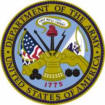  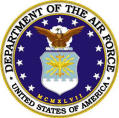 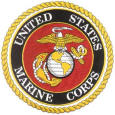  |
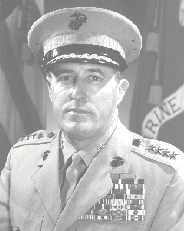
General Raymond G. Davis, 13 Jan 1915 - 03 Sept 2003,who earned the Medal of Honor in Korea in 1950, retired from active duty March 31, 1972, after more than 33 years on active duty. His last assignment was as Assistant Commandant of the Marine Corps from March 12, 1971 until March 31, 1972.
As a lieutenant colonel in Korea, General Davis earned the Nation's highest decoration for heroism during the 1st Marine Division's historic fight to break out of the Chosin Reservoir area. There, against overwhelming odds, he led his battalion in a terrific four-day battle which saved a rifle company from annihilation and opened a mountain pass for the escape of two trapped Marine regiments. The award was presented him by President Truman in a White House ceremony on November 24, 1952. The accompanying citation reads:
"For conspicuous gallantry and intrepidity at the risk of his life above and beyond the call of duty as Commanding Officer of the First Battalion, Seventh Marines, First Marine Division (Reinforced), in action against enemy aggressor forces in Korea from 1 through 4 December 1950.
"Although keenly aware that the operation involved breaking through a surrounding enemy and advancing eight miles along primitive icy trails in the bitter cold with every passage disputed by a savage and determined foe, Lieutenant Colonel Davis boldly led his battalion into the attack in a daring attempt to relieve a beleaguered rifle company and to seize, hold and defend a vital mountain pass controlling the only route available for two Marine regiments in danger of being cut off by numerically superior hostile forces during their redeployment to the port of Hungnam.
"When the battalion immediately encountered strong opposition from entrenched enemy forces commanding high ground in the path of the advance, he promptly spearheaded his unit in a fierce attack up the steep, ice-covered slopes in the face of withering fire, and, personally leading the assault groups in a hand-to-hand encounter, drove the hostile troops from their positions, rested his men and reconnoitered the area under enemy fire to determine the best route for continuing the mission.
"Always in the thick of the fighting, Lieutenant Colonel Davis led his battalion over three successive ridges in the deep snow in continuous attacks against the enemy and, constantly inspiring and encouraging his men throughout the night, brought his unit to a point within 1500 yards of the surrounded rifle company by daybreak. Although knocked to the ground when a shell fragment struck his helmet and two bullets pierced his clothing, he arose and fought his way forward at the head of his men until he reached the isolated Marines.
"On the following morning, he bravely led his battalion in securing the vital mountain pass from a strongly entrenched and numerically superior hostile force, carrying all his wounded with him, including 22 litter cases and numerous ambulatory patients. Despite repeated savage and heavy assaults by the enemy, he stubbornly held the vital terrain until the two regiments of the division had deployed through the pass and, on the morning of 4 December, led his battalion into Hagaru-ri intact.
"By his superb leadership, outstanding courage and brilliant tactical ability, Lieutenant Colonel Davis was directly instrumental in saving the beleaguered rifle company from complete annihilation and enabled the two marine regiments to escape possible destruction. His valiant devotion to duty and unyielding fighting spirit in the face of almost insurmountable odds enhance and sustain the highest traditions of the United States Naval Service."
|
Raymond Gilbert Davis was born on January 13, 1915, in Fitzgerald, Georgia, and graduated in 1933 from Atlanta Technical High School, Atlanta, Georgia. He then entered the Georgia School of Technology, graduating in 1938 with a Bachelor of Science degree in Chemical Engineering While in college he was a member of the Reserve Officers Training Corps unit. After graduation, he resigned his commission in the U. S. Army Infantry Reserve to accept appointment as a Marine second lieutenant on June 27, 1938.
In May 1939, Lieutenant Davis completed the Marine Officers Basic School at the Philadelphia Navy Yard, and began a year of service with the Marine Detachment on board the USS PORTLAND in the Pacific. He returned to shore duty in July 1940 for weapons and artillery instruction at Quantico, Virginia and Aberdeen, Maryland. Completing the training in February 1941, he was assigned to the 1st Antiaircraft Machine Gun Battery of the 1st Marine Division at Guantanamo Bay, Cuba. He returned to the United States with the unit in April, and the following month was appointed battery executive officer, serving in that capacity at Parris Island, South Carolina and Quantico. He was promoted to first lieutenant in August 1941. That September, he moved with the battery to the Marine Barracks, New River (later Camp Lejeune), North Carolina. Upon his promotion to captain in February 1942, he was named battery commander.
During World War II, he participated in the Guadalcanal Tulagi landings, the capture and defense of Guadalcanal, the Eastern New Guinea and Cape Gloucester campaigns, and the Peleliu operation. Beginning in June 1942, he embarked with his unit for the Pacific area, landing at Guadalcanal two months later. After that campaign, he was appointed Executive Officer of the 1st Special Weapons Battalion, 1st Marine Division. In October 1943, Major Davis took over command of the battalion and served in that capacity at New Guinea and Cape Gloucester. In April 1944, while on Cape Gloucester, he was named Commanding Officer, 1st Battalion, 1st Marines, 1st Marine Division. Major Davis' action while commanding the 1st Battalion at Peleliu in September 1944 earned him the Navy Cross and the Purple Heart. Although wounded during the first hour of the Peleliu landing, he refused evacuation to remain with his men; and, on one occasion, when heavy Marine casualties and the enemy's point-blank cannon fire had enabled the Japanese to break through, he personally rallied and led his men in fighting to reestablish defense positions. In October 1944, he returned to Pavuvu and was promoted to lieutenant colonel.
Returning to the United States in November 1944, Lieutenant Colonel Davis was assigned to Quantico, as Tactical Inspector, Marine Corps Schools. He was named Chief of the Infantry Section, Marine Air-Infantry School, Quantico, in May 1945, and served in that post for two years before returning to the Pacific area in July 1947 to serve with the 1st Provisional Marine Brigade on Guam. He was the 1st Brigade's Assistant Chief of Staff, G-3 (Operations and Training), until August 1948, and from then until May 1949, was Assistant Chief of Staff, G-4 (Logistics). Upon his return from Guam in May 1949, he was named Inspector Instructor of the 9th Marine Corps Reserve Infantry Battalion in Chicago, Illinois. He served there until August 1950 when he embarked for Korea.
|
In Korea, Lieutenant Colonel Davis commanded the 1st Battalion, 7th Marines, from August to December 1950. Besides receiving the Medal of Honor for action during that period, he twice earned the Silver Star Medal by exposing himself to heavy enemy fire while leading and encouraging his men in the face of strong enemy opposition. He also received the Legion of Merit with Combat "V" for exceptionally meritorious conduct and professional skill in welding the 1st Battalion into a highly effective combat team. Later, as Executive Officer of the 7th Marines, from December 1950 to June 1951, Lieutenant Colonel Davis earned the Bronze Star Medal with Combat "V" for his part in rebuilding the regiment after the Chosin Reservoir campaign. He returned from Korea in June 1951.
Ordered to Headquarters Marine Corps, Washington, D. C., Lieutenant Colonel Davis served in the Operations Subsection, G-3, Division of Plans and Policies, until February 1952, when he took charge of the subsection. In April 1953, he became Head of the Operations and Training Branch, G-3 Division. While serving in this capacity, he was promoted to colonel in October 1953. The following July Colonel Davis attended the Special Weapons Employment Course, Fleet Training Center, Norfolk, Virginia, under instruction. In September 1954, he entered the Senior Course, Marine Corps Schools, Quantico. Upon completing the course in June 1955, he served consecutively as Assistant Director and, later, Director of the Senior School in October 1957, he was again transferred to Washington, D. C., and served there as Assistant G-2, Headquarters Marine Corps, until August 1959. The following June, he completed the course at the National War College in Washington. Assigned next to Headquarters, United States European Command, in Paris, France, he served from July 1960 through June 1963, as Chief, Analysis Branch, J-2, Staff of the Commander in Chief, Europe. On July 1, 1963, he was promoted to brigadier general while en route to the United States.
General Davis' next assignment was in the Far East where he served as Assistant Division Commander, 3d Marine Division, FMF, on Okinawa, from October 1963 to November 1964. During this period, he also performed additional duty as Commanding General, SEATO Expeditionary Brigade, EXLIGTAS, in the Philippines, during June 1964; and as Commanding General, 9th Marine Expeditionary Brigade, in China Sea Contingency Operations, from August 2 to October 16, 1964. In December 1964, he was assigned to Headquarters Marine Corps He served as Assistant Director of Personnel until March 1965, then served as Assistant Chief of Staff, G-1, until March 1968. For his service in the latter capacity, he was awarded a second Legion of Merit. He was promoted to major general in November 1966.
Ordered to the Republic of Vietnam, General Davis served briefly as Deputy Commanding General, Provisional Corps, then became Commanding General, 3d Marine Division. For his service in the latter capacity from May 22, 1968 until April 14, 1969, he was awarded the Distinguished Service Medals and three personal decorations by the Vietnamese Government. |
Upon his return to the United States in May 1969, he was assigned duty as Deputy for Education with additional duty as Director, Education Center, Marine Corps Development and Education Command, Quantico, Virginia. After his promotion to lieutenant general, July 1, 1970, he was reassigned duty as Commanding General, Marine Corps Development and Education Command. 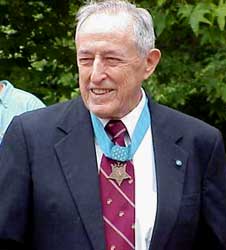
On February 23, 1971, President Nixon nominated General Davis for appointment to the grade of general and assignment to the position of Assistant Commandant of the Marine Corps. His nomination was confirmed by the Senate and he received his fourth star on assuming those duties, March 12, 1971. For his service as Deputy for Education and subsequently as Commanding General, Marine Corps Development and Education Command, Quantico, Virginia, during the period May 1969 to March 1971, and as assistant Commandant of the Marine Corps from March 1971 to March 1972. He was awarded a Gold Star in lieu of a second Distinguished Service Medal.
A complete list of his medals and decorations include:
the Medal of Honor;
the Navy Cross;
the Distinguished Service Medal with Gold Star in lieu of a second award;
the Silver Star Medal with Gold Star in lieu of a second award;
the Legion of Merit with Combat "V" and Gold Star in lieu of a second award;
the Bronze Star Medal with Combat "V";
the Purple Heart;
the Presidential Unit Citation with four bronze stars indicative of second through
fifth awards;
the Navy Unit Commendation;
the American Defense Service Medal with Fleet clasp;
the American Campaign Medal;
the Asiatic-Pacific Campaign Medal with one silver star in lieu of five bronze stars;
the World War II Victory Medal;
the National Defense Service Medal with one bronze star;
the Korean Service Medal with four bronze stars;
the Vietnam Service Medal with three bronze stars;
the National Order of Vietnam, 4th Class;
the National Order of Vietnam, 5th Class;
the Vietnamese Cross of Gallantry with three Palms;
two Korean Presidential Unit Citations;
the United Nations Service Medal; and
the Republic of Vietnam Campaign Medal.
General Davis passed away on 3 September 2003. |
|
More on General Davis here: Combatwife.net DefenseLink.mil
"Above all, I see myself as a man of action. I never sit around and think about others doing this or that. . . . I am aware that as a holder of the Medal of Honor, I belong to this nation forever, because of a combat situation where literally thousands of men's lives depended on the actions that I took when someone had to take action." —General Raymond G. Davis |
| Please remember the Canteen is here to honor, support and entertain our troops and their families. This is a politics-free zone! Thanks for helping us in our mission! |
|













